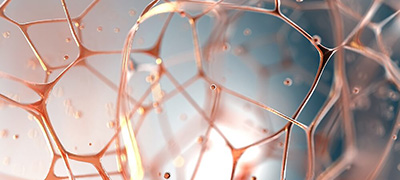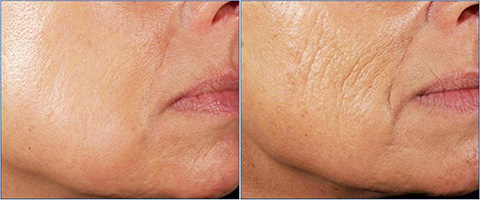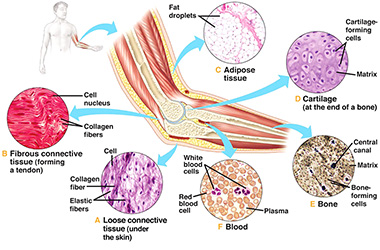WHAT IS COLLAGEN? TYPES, FUNCTIONS, BENEFITS
Collagen, the cement of the body! Types, functions, benefits, food sources, supplements, and more...
When it comes to protecting the health of the skin, ensuring the integrity of the hair and nails, combating joint rheumatism and the dissolution of the articular cartilages, Collagen appears before us. In addition, collagen plays a very important role in the fight against osteoporosis.
Detailed reading:
Specific Collagen Peptides Improve Bone Mineral Density and Bone Markers in Postmenopausal Women—A Randomized Controlled Study,
Women with low-energy fracture should be investigated for osteoporosis
Collagen is made up of three amino acids: glycine, proline, and hydroxyproline, is the cement of the human body and makes up 80% of the body structure from birth to death. The name collagen comes from making collage, that is, gluing. Thanks to Collagen, cells and organs are connected to each other, the integrity of the tissues is ensured, and they are flexible and elastic.

Collagen is not a single substance, there are 28 different type of Collagen, however Type 1, Type 2, Type 3, Type 4 and Type 5 Collagens make up 80% of the total collagen reserve in the body. They have different tasks, for example Type 1 and Type 3 Collagen function as skin and tissue Collagen, Type 2 Collagen stands out as bone and cartilage Collagen.
Collagen is a tough, insoluble and fibrous protein molecule that plays a major role in many structures,
- Skin,
- Tendons,
- Blood vessels,
- Cartilage,
- Bones,
- Connective Tissue, which anchors cells to each other.
Detailed reading:
The impact of collagen protein ingestion on musculoskeletal connective tissue remodeling: a narrative review
Healthy collagen levels contribute to:
- Joint health,
- Protection of the kidneys and other organs,
- Skin elasticity,
- Healthy cardiovascular system.
Collagen is a key component of the Extracellular Matrix, a network of molecules that holds together the body’s tissues.

The Extracellular Matrix is the connecting structure between cells and is very important for the body. It is abundant in bones, joints, and any organ you can think of. The Extracellular Matrix consists of three main components, Collagen, Elastin and Glycoaminglicans. It is in the form of a bond between cells, and primarily provides structural flexibility and creates the strength of the bones with minerals and growth hormone.
Detailed reading:
The extracellular matrix at a glance
Without the Extracellular Matrix, it is not possible for the body to maintain its structural integrity, it ensures that the cells are together and in an order, and prevents them from dispersing and clinging to other regions. In the absence of the Extracellular Matrix, cells can self-scatter in different directions and structural integrity is destroyed. The Extracellular Matrix is generally referred to as Connective Tissue.
Collagen is one of the main components of the Extracellular Matrix, and it is produced by companies and sold as a supplemental protein. Under normal conditions, the collagen produced in the body cannot be absorbed because of its large molecule, it is first turned into gelatin and absorbed in the gastrointestinal tract, but since the products sold as supplements are subjected to chemical reactions and turned into micromolecules, their absorption takes place more easily. Collagen, which is in the structure of the Extracellular Matrix in our body, has no absorbability feature because these are macromolecules.
There are 28 known types of Collagen, but Collagens between Type 1 and Type 5 are the most important. Type 1 Collagen is found mostly in the skin. 75% of the collagen in the skin is Type 1, 25% is Type 2 and Type 3 Collagen. In the connective tissue and joints, 75% Type 2 Collagen is found, while 25% is Type 1 and Type 3 Collagen. If Collagen is to be taken as a supplement, Type 1 Collagen should be used for skin health, and Type 2 Collagen should be used for connective tissue, joints and cartilages.

In preparations sold as supplements, Type 3 Collagen is found in both Type 1 and Type 2 Collagen. There is no harm in this, but the right type should be selected according to the place of use and its density should be checked in the preparation. Because these supplements are very expensive products and their use is increasing all over the world, it is important that it really works.
Collagen is low in calories and taken Collagen as supplement does not cause weight gain. However, Collagen is a fibrous protein and too much of it causes fibrosis. The thick and swollen tissue that forms as wounds heal is this fibrotic tissue.
Taking Collagen with antioxidants increases its absorption more. There are various diseases related to disorders in Collagen synthesis. For example, Ehlers-Danlos Syndrome is quite interesting. In Ehlers-Danlos disease, the patient can bend backwards 360°, his hands and fingers are very flexible, a huge body can fit even in a small suitcase. Glass bone syndrome is another disease. The slightest touch to the patient can cause his bones to break. Such diseases are genetic disorders related to Collagen synthesis.
Daily Collagen requirement is 10 grams, of course, some amount of this can be taken with various foods. If Collagen supplement is taken, it should be taken over 2.5 grams, when taken under 2.5 grams, Collagen supplement cannot reach its place because it is primarily used by other organs on the way!
Collagen can be taken in tablet, liquid or in powder form. Tablet form contains least Collagen. Liquid form must be Hydrolyzed Collagen.
The amount of Collagen in the body decreases from the age of 30. In addition, Collagen synthesis decreases in stressful environments. A sedentary life also causes Collagen deficiency.

Collagen does not have any defined side effects, but due to the hyaluronic acid it contains, edema may occur around the eyes, hands and feet, especially in the morning, in the first weeks of supplements use. Apart from this, sometimes there may be side effects such as nausea, activation of reflux, increased calcium causing nausea and vomiting. It is recommended to take Collagen supplements at night. Since hormones such as melatonin and growth hormone are also secreted at night, Collagen supplement serves better for the construction of the Connective Tissue.
Nowadays, it is not possible to obtain Collagen only from food. The main reason for the lack of Collagen is that we have separated the meat from the bone in modern food systems. In other words, we left eating the meat that is cooked slowly, together with the bone, on low heat and started eating the breast of the chicken or the back of the veal! Again, the reason is that we have removed and not used the bone and tendons, internal organs and offal of animals. The fundamental change in our diet!

When preparing Collagen supplements, the first thing to do is to transform the non-absorbable Collagen due to their large molecules into absorbable Collagen hydrosylates, namely Collagen peptides. Large pieces of Collagen with a weight of more than 2000, 3000 daltons cannot be absorbed in our intestines, we need to break up large molecules. For this reason, when we take a Collagen supplement, the first thing to do is to see if the product is a Collagen peptide and to know that only amounts over 2.5 grams can work. The benefit rate increases when 5 grams, 7.5 grams, 10 grams are taken per day.
When choosing a product for Collagen supplementation, it should be carefully checked where and at what standards the products are produced and whether they contain sugar, especially "fructose". Sugary Collagen does more harm than good. In addition, Collagen products containing vitamin D, biotin and zinc should be preferred. Along with the Collagen product, vitamin C supplementation provides many benefits.
If you want to increase the production of Collagen in the metabolism, it is not necessary to eat meat, broth, bone broth, bone powder... always. Consuming more sulfur-rich foods, namely cabbage, cauliflower, radishes, onions, garlic, and eating foods rich in vitamin C, that is, vegetables and fruits more often and abundantly will provide similar benefits.

In short, it is not possible to achieve a beautiful appearance and a healthy and happy old age without Collagen.
Back to Home
Contact Us
Questions, comments and suggestions.. Let us know!

